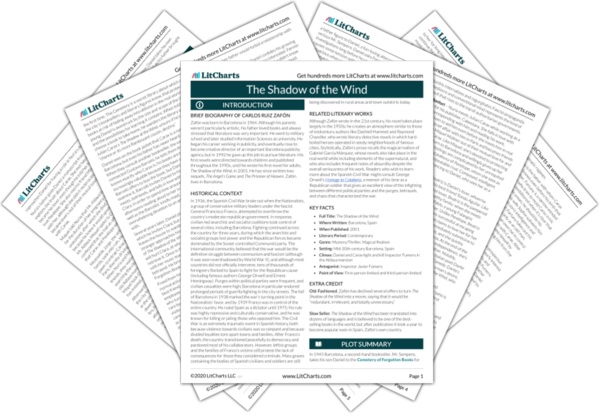Previous
Nuria Monfort: Chapter 10
|
Previous
Nuria Monfort: Chapter 10
|
The Shadow of the Wind: Nuria Monfort: Chapter 11 Summary & Analysis |
Next
Nuria Monfort: Chapter 12
|


Upgrade to unlock the analysis and theme tracking for all of The Shadow of the WindThe Shadow of the Wind!
Get LitCharts A+